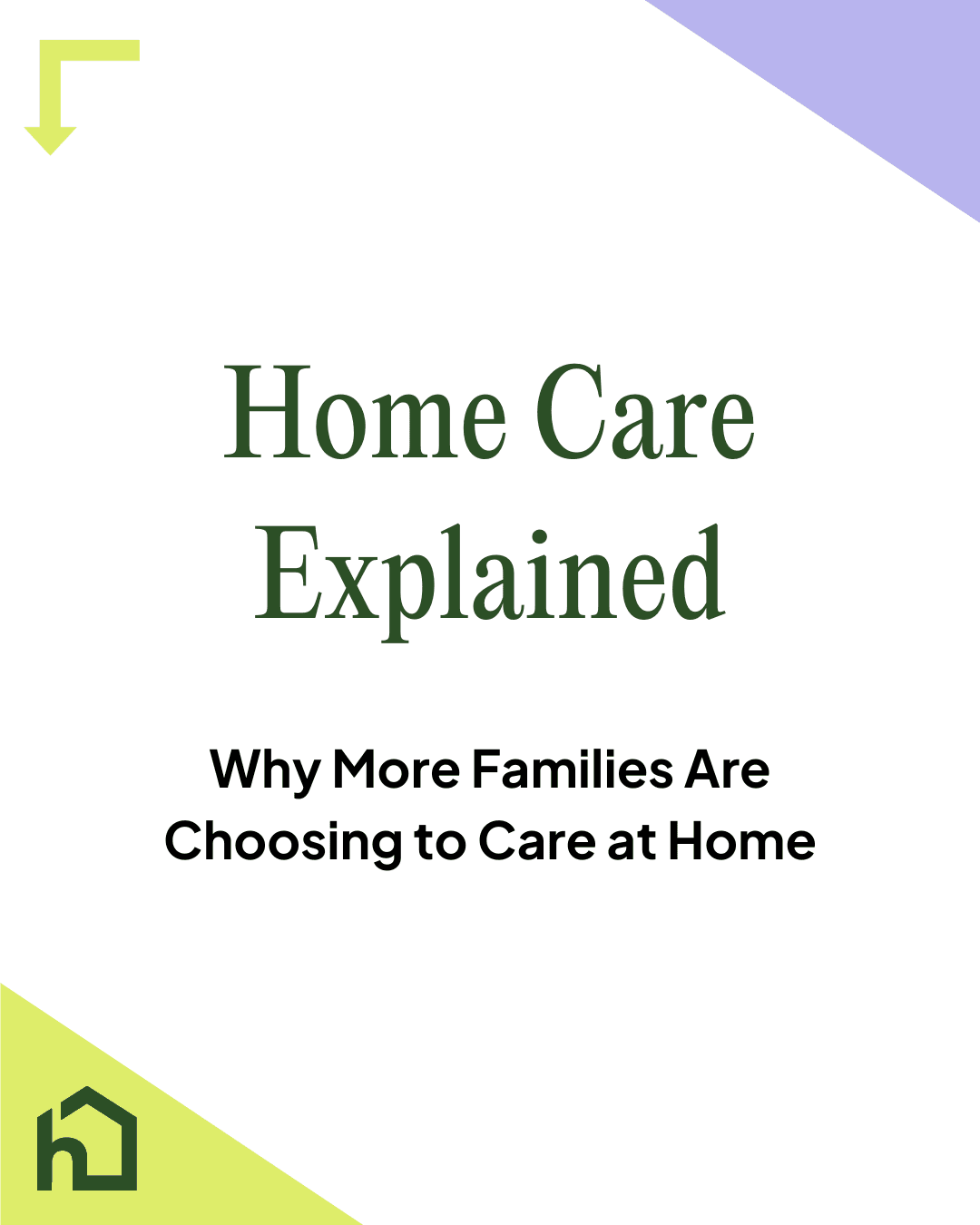🏡 Home Care Explained: Why More Families Are Choosing to Care at Home

When a loved one begins to need extra help day-to-day, one of the first questions many families ask is: what are our options? While residential care homes may be the most well-known route, more families across Teesside and the UK are now choosing home care—a flexible, compassionate alternative that enables people to receive support where they feel most comfortable: at home.
At Home Instead Cleveland, we believe home is more than just a place—it’s a source of comfort, dignity, and independence. In this post, we’ll explore what home care really involves, the types of services available, and why it’s becoming the first choice for so many families.
💡 What Is Home Care?
Home care, sometimes called domiciliary care, is professional support delivered in a person’s own home. Rather than moving into a care facility, individuals receive tailored assistance that fits around their lifestyle, routines, and preferences.
Depending on the needs of the individual, home care can include help with:
- Personal care (bathing, dressing, grooming)
- Meal preparation and nutrition
- Medication reminders and management
- Light housekeeping and errands
- Companionship and emotional support
- Support for managing health conditions, including dementia, Parkinson’s, arthritis, and more
Our Care Professionals at Home Instead Cleveland are trained to provide all of this and more—always with a focus on relationship-led care that respects the individual’s personality and pace.
🧠 The Emotional and Mental Benefits of Staying at Home
Choosing care at home doesn’t just support physical wellbeing—it can significantly enhance mental and emotional health too.
Remaining in familiar surroundings helps to reduce confusion, particularly for those living with dementia, and allows individuals to maintain daily routines that bring comfort and confidence. The security of home, paired with one-to-one support, can reduce anxiety, promote independence, and even slow cognitive decline in some cases.
As one local client recently shared, “Having my carer visit each morning has given me a reason to look forward to the day again. I still feel like myself.”
❤️ Family Involvement and Peace of Mind
Another key reason families choose home care is the opportunity to stay actively involved. Unlike some traditional care settings, home care allows for:
- Ongoing communication between the care team and family
- Flexibility in visit times and routines
- The chance for loved ones to pop in, stay connected, and be part of the care journey
This ongoing involvement not only supports better outcomes, it can strengthen family relationships and provide valuable peace of mind.
📈 Why Is Home Care Growing in Popularity?
In recent years, demand for home care has risen sharply, and for good reason. According to research from moneyhelper.org.uk, more families are now weighing emotional wellbeing and quality of life just as heavily as physical care needs.
With rising awareness about person-centred care and the importance of maintaining dignity in later life, home care is being recognised as a more humane and holistic option.
At Home Instead Cleveland, our mission is to change the face of ageing—one relationship at a time. We’ve seen firsthand how compassionate, tailored support at home can transform not only the life of the person receiving care, but their whole family.
🙋 Is Home Care Right for Your Loved One?
Home care isn’t just for those with high needs. Whether your loved one needs help a few hours a week or more intensive daily support, we can design a care plan that works around your family’s routine.
And if you’re just starting to explore options, we’re here to guide you through every step.
📞 Get in touch with our friendly team at Home Instead Cleveland to learn more about how we can help your loved one live well at home.
Next Week: Stay tuned for our next blog in the series—“Home Care Myth’s Busted”, where we’ll cover the signs that extra support might be needed and how to start the conversation.